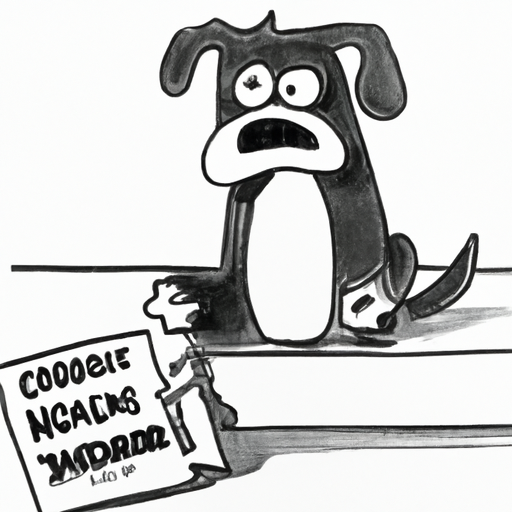Introduction
As a caregiver, you provide unwavering love and support to your four-legged companions. You’re always on the lookout for what’s best for them and you understand the importance of keeping certain foods out of their reach. One such food that poses a significant risk to our furry friends is chocolate. But what exactly is it in chocolate that makes it harmful for dogs?
The Culprit: Theobromine
The main toxic component in chocolate for dogs is a substance known as Theobromine. Here’s a simple breakdown of the levels of Theobromine in various types of chocolate:
| Type of Chocolate | Theobromine (mg/oz) |
|---|---|
| Milk Chocolate | 60 mg |
| Dark Chocolate | 160 mg |
| Baking Chocolate | 450 mg |
Darker and purer chocolates typically contain more Theobromine. Even a small amount can cause harmful effects in dogs.
Theobromine’s Effects on Dogs
You might be wondering, “Why is Theobromine harmful to dogs?” The simple answer: dogs metabolize Theobromine much slower than humans. This slow process can lead to Theobromine poisoning, which can cause:
- Seizures
- Abnormal heart rhythms
- Internal bleeding
- Even death in severe cases
Emergency Response
If you suspect your dog has ingested chocolate, it’s important to act swiftly. Here’s what you should do:
- Don’t panic. Keep calm and act promptly.
- Try to determine the type and amount of chocolate ingested.
- Contact your vet or a pet poison control center immediately.
These steps can make a critical difference in your pet’s wellbeing.
Preventative Measures
Prevention is always better than cure. Here are some steps to ensure your dog never gets their paws on chocolate:
- Keep all chocolate stored away in high places or locked cabinets.
- Educate your household members and visitors about the risks of feeding chocolate to dogs.
- Supervise your dogs, especially during festive occasions when chocolate might be more accessible.
FAQs
Q: Can a small amount of chocolate kill a dog?
A: While a tiny bit of chocolate might not be fatal, it can still cause serious harm. The effects depend on the dog’s size, the type of chocolate, and the amount ingested.
Q: What other foods are harmful to dogs?
A: Other harmful foods include onions, grapes, raisins, alcohol, and certain artificial sweeteners.
Q: What should I do if I can’t reach my vet?
A: If you can’t reach your vet, contact a pet poison control center immediately.
Remember, you are your pet’s first line of defense against harmful substances. Your vigilance can keep them safe, happy, and healthy.



